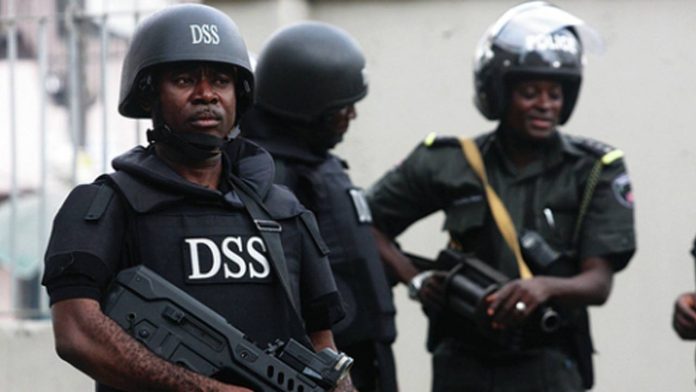A Federal High Court in Abuja is set to deliver judgment on Monday, September 29, in a suit brought by the Department of State Services, accusing public intellectual Prof. Pat Utomi of attempting to establish a “shadow government.”
In the suit marked FHC/ABJ/CS/937/2025, DSS told the court that Utomi’s proposed government is unconstitutional.
It was reported that Utomi, in May this year, inaugurated “Big Tent Coalition Shadow Government,” composed of members from various opposition parties.
According to him, the government was launched to function as a credible opposition force, highlighting the failures of the Bola Tinubu administration while offering ideas for better governance.
But the Federal Government kicked against the move, describing it as an aberration in a federal system of government.
In its suit, DSS claimed the 2007 presidential candidate of the African Democratic Congress was attempting to illegally usurp the executive powers of Tinubu.
It argued the initiative poses a threat to national security and amounts to a parallel authority not recognised under the 1999 Constitution (as amended).
The agency asked the court for a perpetual injunction restraining Utomi, his agents and associates from pursuing the project, saying the structure could incite unrest and embolden separatist groups.
In his final address on July 10, DSS counsel, Akinlolu Kehinde (SAN), maintained that Utomi lacked constitutional authority to establish any such government, likening the plan to early warning signs of insurgent groups.
“We know how Boko Haram started, and even IPOB. We must not wait for crisis to happen before we act,” he argued.
However, Utomi’s lawyer, Mike Ozekhome, countered that the initiative was not a parallel authority but a civic platform designed to scrutinise government policies and proffer solutions. He insisted that branding it as subversive amounted to gagging Nigerians.
“They are trying to chain Nigerians with shackles stronger than those that dehumanised slaves over 500 years ago,” Ozekhome told the court.
He argued that the group neither has an executive, legislature, nor judiciary, but is a coalition of like-minded citizens. He urged the court to dismiss the suit as an attempt to criminalise dissent.
Opinions were also taken from seven amici curiae (friends of the court).
One amicus curiae, Joseph Daudu (SAN), described the nomenclature of “shadow government” as dangerous and unconstitutional.
Meanwhile, Joe Gadzama (SAN) warned that granting the DSS’s request could stifle free expression, noting that no evidence had been presented to show the group sought to take control of government.
Justice Omotosho reserved judgment on July 10 after hearing the arguments and receiving the amici’s submissions.
The court’s decision on Monday will determine whether the DSS can lawfully prohibit the initiative or whether the project, as counsel for Utomi maintains, falls within citizens’ rights to engage in public scrutiny and policy debate.
-Advertisement-
Grab our latest Magazine, "Chief Wole Olanipekun, CFR, SAN, A man of wide horizons and deep intentions". Get your order fast and stress free.
For more details about Newswire Law&Events Magazine, kindly reach out to us on 08039218044, 09070309355. Email: newswiremagazine@yahoo.co.uk. You will be glad you did






